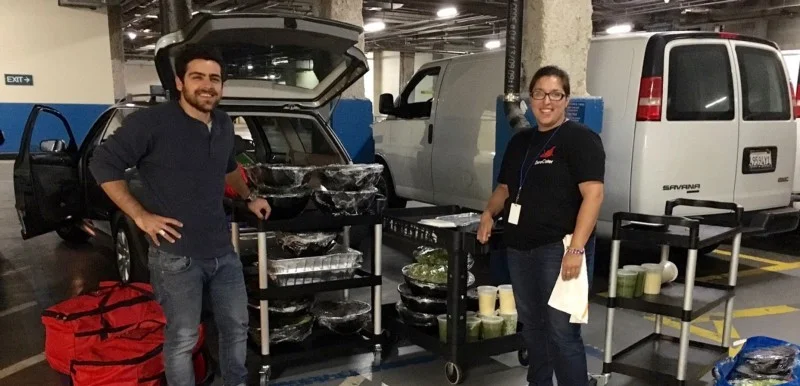How To Build A Social Enterprise from Scratch
A common misconception about startups is that raising money correlates to success. However, I believe that value is a more appropriate measure of success for a social enterprise. When I started Replate, a nonprofit that connects surplus food from donating companies to those in need, we measured our impact by how well we met the needs of our recipients and the extent to which we reduced a company’s food waste. If you’re thinking of building a social enterprise from scratch, here are three steps to ensure that you make a lasting impact:
1. Question what’s around you.
Taking note of the disparities in the world we live in is critical for building a social enterprise that is more than just good intentions. Often this requires taking a step back from day-to-day distractions to question the status quo.
Immigrating from Syria to the USA eight years ago provided a natural opportunity for me to look at my new surroundings with fresh eyes. I came to the Bay Area as an eager UC Berkeley student, excited to be living in what was known abroad as a land of opportunity and innovation. When I arrived, I was shocked to see poverty all around me. The reality of my daily walk to class was seeing people sleeping on the streets or desperately scouring through trash cans looking for food. This poverty was inconceivable to me, set literally across the street from multi-billion dollar companies that work to solve some of the world’s toughest problems.
Why was there no solution to this poverty and hunger? I kept coming back to this question over the next several years, and by the time I had graduated, I knew something needed to be done.
2. Go out and try it.
Getting “out of the building” is a major step in creating a social enterprise and, unfortunately, when many great ideas are abandoned due to fear of failure. This step is less daunting if you start small and devote enough time to researching your idea. Read industry resources and publications from well-respected sources in your field, use your connections for advice, and go to events (Impact Hub, WeWork, and LinkedIn events are some of my favorites).
After familiarizing yourself with the industry, give your idea a try. Once I graduated and had more time, I went out and coordinated food pickups from catered events on campus (pizza parties were gold) and brought them to local shelters. Although I had no prior experience with delivery or dispatching, I was Replate’s lead (and only) driver for the first ten months.
Replate pickup at LinkedIn with one of my favorite ZeroCater employees, Celia.
Sticking your neck out when the business is still small lets you see first-hand whether your enterprise works or not. As I coordinated more pickups and deliveries, it became clear that we offered immediate value to both donors, who were sick of watching their food go to waste, and recipients, who struggled to find even one healthy meal a day.
3. Sustain and scale.
Building a team is key to keeping your new enterprise sustainable. I knew I needed to recruit more drivers when I started receiving three pickup requests at once. More on recruiting to come in a later post, but it goes without saying that people who will go the extra mile for the mission of your company are crucial.
As your team grows, scale by listening to what your customers want first. It was clear to us that donors valued on-time pickups and quick customer service, so we focused on cultivating personal connections with their staff. This meant investing less on an advanced dashboard and more on a Typeform sign-up form with a few simple questions about pickup needs. Donors didn’t mind the simple technology because we had already built strong relationships with them, and they trusted us to provide a dependable, responsive service. When we did eventually upgrade our technology, it was certainly a welcome change, but by no means the core of our service.
Loyal customers are everything in the early stages of your company. Cultivating a limited network of dedicated clients at first will enable you to provide a more consistent service and, in turn, establish trust and loyalty. Your happy patrons will spread the word to similar businesses, leading to more opportunities.
Recognizing success and moving forward.
The approach above allowed Replate to create consistent value, even as we scaled. Today we operate in over 50 regions nationally, have a growing and passionate employee base, and are proud to work with clients like Twitch, Airbnb, Dropbox, ZeroCater, Zesty, Trello, Slack, and Cater2.me. But our work is far from over. Long term, we hope to build the infrastructure needed to bring surplus food to the right place at the right time in every major city in the world.
*In my next post, we will discuss ways in which nonprofits or social enterprises can scale their impact by embracing platforms like Slack, Onfleet, Airtable, Intercom, When I Work and Asana.

